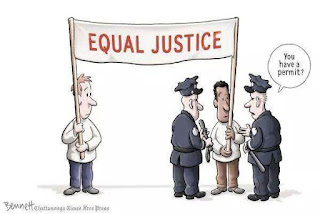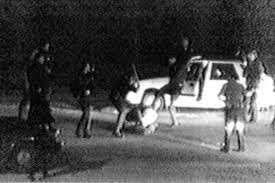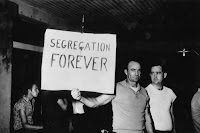White Tears, White Privilege
I wrote in the previous post that I believe it important that white folks do their initial learning on their own or in all-white spaces. I recommend this because once you start learning just how fucked up our world is and just how fucking hard it is for people of color, you are going to want to cry. It's a perfectly natural reaction, for white people. Done alone or in company of like-minded white folks, crying can be healing and restorative. But here's the thing: crying is a privilege, an almost exclusively white privilege.
It's ok if that doesn't make sense right now, but I hope it will by the end of this post.
White privilege is too often misunderstood. I will be posting a three-part essay on this soon, but for now suffice it to say that white people only see their privilege if they are actually getting something (even then, we often deny our privilege). Instead of viewing privilege this way, try thinking about white privilege as a shield that keeps us isolated from the rest of the world. We are shielded from what life is like for other people because we can be, because it does not affect us. We are shielded (read "privileged") from the brutality of mass incarceration because it doesn't affect us. The people affected by mass incarceration, overwhelmingly Black and Brown people, do not get to ignore it because it is part of their daily life. People of color have been living, and dying, in racist systems and laws for as long as white people have been creating them. So, put yourself in the shoes of a middle-class Black mother of two: Every time her children leave the house she does not know if they will come back alive. She lives in a good neighborhood but she knows from personal experience how the police target Blacks even in the suburbs. Second to fear of their death is their precarious proximity to the "justice" system. Like most other kids his age and at his school, her son is experimenting with pot. If he gets pulled over, searched, and found with marijuana on him, he will very likely end up with a felony and in the prison system, quite possibly for life. Similar things happened to her nephew, her uncle, and countless other friends and family members for generations. This mother must live with continual, and completely rational, fear for her children. When she goes to work, when she cooks dinner, when she relaxes on the weekend...this is always here with her. She has taught her children, as she was taught as a child, to live with this fear by creating a brittle exterior with which she can function in the world. She does not cry in front of other people; she is calm and strong when she is out in the world. This isn't a natural talent or trait she was born with. It is a skill, necessary to her survival.
Imagine if you were this woman and a white person, a friend even, came to you in tears over a book that she had just read about how terribly Black people are treated and how fucked up the criminal justice system is. She is sobbing, inconsolable and enraged at, what to her is new, information. She is the one who has been shielded from this reality, and you have been forced to live in it, dry-eyed and stoic. Your children are the ones at risk every day. Not hers. Imagine how that would make you feel to see her crying to you.
As white folks, we must learn the histories and the current atrocities we've been shielded from, but we must do so on our own. We must deal with this pain in white spaces, so that when we show up to fight for racial justice, we can be dry-eyed, stoic and strong with those who are forced into that strength for their very survival.
If you are ready to get to work, here is a great article by Black Lives Matter co-founder, Patrisse Khan Cullors. She has excellent recommendations for how we can be active in the struggle for justice.



Comments
Post a Comment